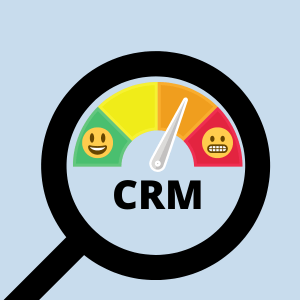- CRM Integration with ecommerce platforms
- Unlocking the Power of CRM Integration in Ecommerce
- The Benefits of Integrated Customer Relationship Management
- Choosing the Right CRM Solution for Your Ecommerce Business
- Ecommerce Integration Platforms: A Closer Look
- Best Practices for Successful CRM Integration with Ecommerce Platforms
- Embracing Advanced CRM Integration Strategies for Ecommerce Success
- Overcoming Challenges in CRM Integration with Ecommerce Platforms
- Exploring Emerging Trends in CRM Integration and Ecommerce
- What is CRM integration with ecommerce?
- How is CRM used in ecommerce?
- What are the benefits of CRM for ecommerce businesses?
- Which CRM solutions are compatible with popular ecommerce platforms like Shopify, Wix, and WooCommerce?
- What are some best practices for successful CRM integration with ecommerce platforms?
CRM Integration with ecommerce platforms
Facebook Youtube LinkedinIn today's ever-evolving online shopping world, connecting with customers and tailoring their experiences is key. That's where Customer Relationship Management (CRM) systems come in, joining forces with e-commerce platforms to make a real difference. This guide is your go-to resource for understanding this powerful duo - E-commerce and CRM. We'll break down why CRM integration matters, its perks, and some smart tips for making it work wonders for your online store. Whether you're a seasoned pro or just starting out, grasping how CRM integration can supercharge your ecommerce journey and understanding the relationship with CRM and Ecommerce are vital for keeping customers happy and growing your business sustainably. Ready to dive in? Let's get started!
Unlocking the Power of CRM Integration in Ecommerce

At its core, Ecommerce CRM integration means a smooth linking of CRM systems with ecommerce platforms to sync up customer data, interactions, and transactions. This powerful connection gives businesses a complete view of their customers' behaviors, preferences, and buying habits, which in turn allows for personalized experiences on a large scale. With integrated Customer Relationship Management (CRM) solutions, businesses can gather data from different sources such as website visits, social media interactions, and emails. This holistic view enables effective segmentation, targeted marketing, and more efficient operations throughout the customer journey.
The Benefits of Integrated Customer Relationship Management
Integrated CRM systems offer a plethora of benefits for ecommerce businesses, ranging from enhanced data visibility to improved operational efficiency. By harnessing the power of integrated CRM, businesses can:
- Personalize Customer Experiences: Tailor marketing messages, product recommendations, and promotional offers based on individual customer preferences and behavior, driving engagement and conversions.
- Streamline Operations: Automate repetitive tasks such as order processing, inventory management, and customer support, freeing up valuable time and resources for strategic initiatives.
- Foster Collaboration: Facilitate seamless communication and collaboration across departments, enabling sales, marketing, and customer service teams to work cohesively towards common goals.
- Optimize Sales Processes: Identify high-potential leads, prioritize follow-up activities, and track deal progression in real-time, accelerating sales cycles and maximizing revenue.
- Enhance Customer Service: Provide personalized assistance and timely support across multiple channels, improving customer satisfaction and loyalty.
Choosing the Right CRM Solution for Your Ecommerce Business

When it comes to CRM integration, selecting the right CRM solution is paramount to success. Consider factors such as scalability, customization options, integration capabilities, and pricing when evaluating CRM vendors. Some popular CRM solutions compatible with ecommerce platforms include Salesforce, HubSpot, Zoho CRM, and others. Whether you're using Shopify, Wix, WooCommerce, or another ecommerce platform, ensure compatibility and seamless integration with your chosen CRM solution to maximize the value of your integration efforts.
Ecommerce Integration Platforms: A Closer Look
Shopify CRM Integration: As one of the most popular ecommerce platforms, Shopify offers seamless integration with leading CRM systems such as Zoho CRM (Best Shopify CRM) and HubSpot. By connecting CRM for Shopify, businesses can sync customer data, track order history, and automate marketing campaigns, thereby optimizing the entire customer lifecycle.
Wix Integration with CRM Systems: Wix, known for its intuitive website builder and ecommerce functionality, also offers integration with CRM systems like Zoho CRM and Salesforce. With Wix CRM integration, businesses can capture leads, track customer interactions, and automate follow-up processes, thereby improving lead conversion and retention.
WooCommerce CRM Integration: WooCommerce, the open-source ecommerce plugin for WordPress, can be seamlessly integrated with CRM solutions such as Zoho CRM and HubSpot. By syncing WooCommerce with a CRM system, especially Woocommerce Zoho CRM integration, businesses can centralize customer data, automate order processing, and gain actionable insights to drive sales and marketing initiatives.
Best Practices for Successful CRM Integration with Ecommerce Platforms
While CRM integration offers numerous benefits, it's essential to know, How CRM is used in E-commerce and what are the best practices to ensure a smooth and successful implementation. Here are some key best practices to consider:
- Define Clear Objectives: Align integration efforts with business goals and KPIs to drive tangible results and maximize ROI.
- Ensure Data Accuracy and Consistency: Maintain accurate, complete, and consistent customer data across all systems to avoid discrepancies and build trust with customers.
- Implement Seamless Data Syncing: Establish seamless data syncing between your ecommerce platform and CRM system to enable real-time access to customer information and interaction history.
- Foster Cross-Functional Collaboration: Encourage collaboration between sales, marketing, and customer service teams to maximize the value of CRM integration and drive collective success.
- Monitor Performance and Iterate: Continuously monitor key metrics such as customer engagement, sales conversion rates, and ROI, and iterate based on insights and feedback to optimize integration efforts.
Embracing Advanced CRM Integration Strategies for Ecommerce Success
As businesses strive to stay ahead in the competitive ecommerce landscape, advanced CRM integration strategies can provide a competitive edge. Let's explore some advanced tactics and technologies that can elevate your CRM integration efforts:
- Omnichannel Customer Engagement: Orchestrate personalized interactions across multiple channels to deliver consistent messaging and experiences that resonate with customers.
- AI-Powered Personalization: Leverage AI and machine learning algorithms to predict customer behavior, identify opportunities, and deliver hyper-personalized recommendations in real-time.
- Predictive Analytics and AI: Analyze vast amounts of customer data to predict future buying behavior, identify cross-selling opportunities, and optimize marketing strategies for maximum impact.
- Customer Lifetime Value Optimization: Calculate and optimize CLV to focus efforts on high-value customers, drive revenue growth, and foster long-term relationships.
- Integration with Advanced Analytics and BI Tools: Combine CRM data with external sources to uncover hidden patterns, correlations, and opportunities for growth, enabling data-driven decision-making and performance optimization.
Overcoming Challenges in CRM Integration with Ecommerce Platforms
Integrating Customer Relationship Management (CRM) systems with ecommerce platforms can be a transformative endeavor for businesses, but it's not without its hurdles. Let's delve into the common challenges faced in CRM integration with ecommerce platforms and explore strategies to overcome them effectively:
1. Data Silos and Fragmentation:
Data silos occur when customer data is scattered across multiple systems and databases, making it challenging to achieve a unified view of the customer. To overcome this challenge, businesses should invest in data integration solutions that enable seamless connectivity and synchronization of data across all touchpoints. By consolidating customer data into a centralized CRM system, businesses can eliminate silos and gain a holistic understanding of customer interactions and behaviors.
Strategy: Implement a robust data integration strategy that ensures the seamless flow of data between your ecommerce platform and CRM system. Utilize APIs, webhooks, and middleware solutions to facilitate real-time data syncing and maintain data consistency across all channels.
2. Integration Complexity and Technical Debt:
Integrating CRM with ecommerce platforms can be complex, especially when dealing with legacy systems, custom APIs, and disparate data formats. Technical debt, resulting from outdated technologies and inefficient processes, can further complicate integration efforts and hinder scalability.
Strategy: Adopt a modular and scalable integration architecture that allows for flexible customization and future-proofing. Leverage modern integration platforms and API management tools to streamline integration workflows, reduce development cycles, and minimize technical debt. By consolidating customer data into Zoho CRM, businesses can eliminate silos and gain a holistic understanding of customer interactions and behaviors.
3. Lack of Cross-Functional Alignment:
Successful CRM integration requires cross-functional alignment and collaboration across sales, marketing, IT, and customer service departments. However, siloed organizational structures and conflicting priorities can impede integration efforts and hinder progress.
Strategy: Establish clear roles, responsibilities, and communication channels for stakeholders involved in the integration process. Foster a culture of collaboration and transparency by organizing regular meetings, workshops, and training sessions to ensure alignment around common goals and objectives.
4. Privacy and Compliance Concerns:
With the increasing emphasis on data privacy and compliance regulations such as GDPR and CCPA, businesses must prioritize security and compliance in CRM integration efforts.
Strategy: Ensure robust security measures, encryption protocols, and access controls are in place to protect sensitive customer data. Leverage Zoho CRM's advanced security features and compliance controls for enhanced data protection. Conduct regular audits and assessments to detect and rectify any potential vulnerabilities or compliance gaps in the integration process.
5. Scalability and Future-Proofing:
As businesses grow and evolve, their CRM integration needs may change, requiring scalable and future-proof solutions that can adapt to changing requirements and technologies.
Strategy: Adopt a modular integration approach that allows for seamless scalability and interoperability with new technologies and platforms. Choose open-source or vendor-agnostic integration solutions like Zoho to reduce dependency on specific vendors and enable greater flexibility and control over the integration process. With Zoho's extensive customization options and modular architecture, businesses can future-proof their CRM integration and adapt to evolving business needs.
Exploring Emerging Trends in CRM Integration and Ecommerce
The landscape of CRM integration and ecommerce is continually evolving, driven by emerging technologies, changing consumer behaviors, and market dynamics. Emerging trends such as conversational commerce, voice commerce, social commerce, AR, and blockchain are reshaping the future of CRM integration and ecommerce, offering new opportunities for growth, innovation, and competitive differentiation.
In Conclusion
In conclusion, CRM integration with ecommerce platforms represents a strategic imperative for businesses seeking to thrive in today's digital landscape. By harnessing the power of integrated customer relationship management, businesses can unlock actionable insights, drive personalized experiences, and foster long-term relationships with customers. Whether it's streamlining operations, optimizing marketing campaigns, or enhancing customer service, CRM integration offers a myriad of benefits that are essential for driving growth and staying ahead of the competition.
As we navigate the future of CRM integration and ecommerce, one thing is clear: the possibilities are endless, and the journey is just beginning. By embracing change, staying agile, and prioritizing customer-centricity, businesses can unlock new opportunities for success in the ever-evolving digital landscape. So, why wait? Take the first step towards ecommerce excellence with effective CRM integration today!Title: Maximizing Ecommerce Success Through Effective CRM Integration
In the dynamic world of ecommerce, where customer engagement and personalized experiences reign supreme, the integration of Customer Relationship Management (CRM) systems with ecommerce platforms has become a game-changer. This comprehensive guide will take you on a journey through the symbiotic relationship between CRM integration and ecommerce, exploring its significance, benefits, and best practices. Whether you're a seasoned ecommerce entrepreneur or just dipping your toes into the digital waters, understanding how CRM integration can turbocharge your ecommerce efforts is essential for achieving sustainable growth and customer satisfaction.
More About Zoho CRM Consulting Services Contact UsWhat is CRM integration with ecommerce?
CRM integration with ecommerce refers to the process of seamlessly connecting Customer Relationship Management (CRM) systems with ecommerce platforms to sync customer data, interactions, and transactions. This integration enables businesses to gain holistic insights into customer behavior, personalize marketing campaigns, and streamline operations.
How is CRM used in ecommerce?
In ecommerce, CRM is used to centralize customer data, track interactions across multiple touchpoints, and deliver personalized experiences at scale. CRM systems enable businesses to segment their audience effectively, automate marketing campaigns, and optimize sales processes for maximum efficiency and effectiveness.
What are the benefits of CRM for ecommerce businesses?
The benefits of CRM integration for ecommerce businesses include enhanced data visibility, streamlined operations, personalized customer experiences, targeted marketing campaigns, optimized sales processes, improved customer service, and predictive analytics insights.
Which CRM solutions are compatible with popular ecommerce platforms like Shopify, Wix, and WooCommerce?
Popular CRM solutions compatible with ecommerce platforms include HubSpot, Zoho CRM, and many others. These CRM solutions offer seamless integration with platforms like Shopify, Wix, and WooCommerce, enabling businesses to synchronize customer data, automate workflows, and drive growth.
What are some best practices for successful CRM integration with ecommerce platforms?
Some best practices for successful CRM integration with ecommerce platforms include defining clear objectives, choosing the right CRM solution, ensuring data accuracy and consistency, implementing seamless data syncing, empowering cross-functional collaboration, and monitoring performance for continuous improvement.





